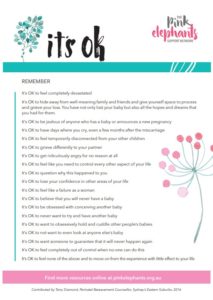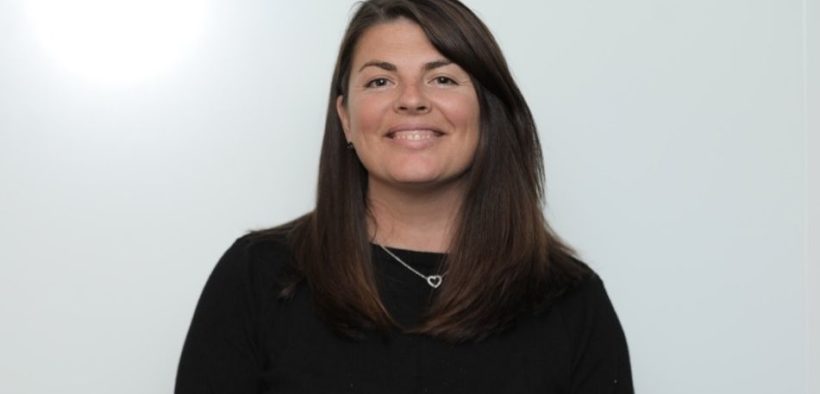Samantha Payne, CEO and Co-Founder of Pink Elephants, is calling on the government to back up its legislative support of early pregnancy loss with funding to services that provide early intervention and peer support.
“Pink Elephants has had its most successful year to date in terms of policymaking, workplace program rollouts, and most importantly, supporting families who have experienced early pregnancy loss. We’ve done all this without any government funding whatsoever,” Payne says.
“The huge uptick in demand for our services is further proof that early pregnancy loss is an issue at the heart of so many Australian families — one in four pregnancies end in miscarriage — and now the Government too recognises it is unacceptable that anyone should have to suffer in silence.” she adds” Everything Pink Elephants has achieved, we’ve achieved without government funding — it’s time to back up the legislation changes with monetary support for our vital programs.”

Third Sector: What does the Leave for Loss mean for businesses and employees?
Sam Payne: Leave for Loss is The Pink Elephants campaign to see an amendment to The Fairwork Act of Australia’s compassionate/bereavement leaves policy. It means that as of now businesses need to provide two days of paid bereavement leave for any employee and her partner who experience the loss of a pregnancy prior to 20 weeks. Prior to our Leave for Loss campaign, there was no provision in place for a loss prior to 12 weeks in the National Employee Standards, meaning that women have been utilising sick or personal leave or worse still returning to work the same day as a pregnancy loss. We’re really proud that this campaign has seen partners included too as research also highlights how partners also grieve the loss of their baby and they too deserve access to bereavement leave.
TS:10 to 15% of pregnancies end in miscarriage and it is traumatic and life-altering, will the new bill also push for other services like mental health for women and families who go through it?
SP: Sadly the new bill has no provision in place to fund support services such as Pink Elephants. Whilst we are incredibly grateful to the current government for working with us on this important policy change there is still very much a real gap in terms of funding for support services. Pink Elephants is still the only national early pregnancy loss-specific support organisation in Australia (103,000 women lose a baby to pregnancy loss every year). The current government does still not provide any specific funding for the issue of miscarriage despite 1 in 3 women in Australia and their partners experiencing a pregnancy loss. It’s something we are working on advocating for. We are a young organisation that is incredibly proud of what we have built but the missing piece is government funding support. This is a traumatic and life-changing event which if left unsupported can lead to poor mental health outcomes. It is no longer ok that in 2021 we still turn a blind eye to the very real psychological morbidity that impacts those who lose a baby during pregnancy.
It’s time to fund more research, referral pathways, healthcare training and specialised early intervention support to ensure no one is unsupported and isolated in their grief and at a heightened risk of experiencing anxiety, depression, post-traumatic stress, and suicidal thoughts. Pink Elephants has seen over 37,000 people access our specialised support content via our website in the period of Jan – July 2021 and we are actively supporting over 7000 women in our online communities.
TS: What are the other benefits, work-wise, that bereavement leave can provide aside from giving women the opportunity to take days off work?
SP: It is really the validation that offering employees bereavement leave that matters most. This policy change is less about the amount of leave given to a couple and more about saying your baby died, of course you are entitled to bereavement leave just like any other death in your family. For too long the experience of miscarriage has been minimised and met with ‘at least’ or it wasn’t really a baby yet, but to the person going through this, it is the death of their baby and they deserve to be met with empathy and understanding. This policy change ensures workplaces validate miscarriage as bereavement. It will go a huge way to challenging the stigma, taboo and silence and ensuring miscarriage is no longer a disenfranchised grief experience, which can ultimately lead to a healthier grieving process and reduced likelihood of poor mental health outcomes.
TS: Miscarriages are a common and urgent health issue—and there are many studies that highlight the connection between miscarriage and negative health outcomes for women. Focusing on health, how can this help women?
SP: Yes, in recent times there have been many studies referencing the strong link to poor mental health outcomes such as anxiety, depression, post traumatic stress and even suicidal thoughts. Professor Tom Bourne in the UK is leading this space with some of his most recent work published in The Lancet Journal and a strong call to action for society to wake up to this issue and change its response.
It’s not ok to expect women to navigate very real trauma alone unsupported, they deserve access to specialised support such as what Pink Elephants Circle of Support offers. This important research helps women by providing a clear evidence base for organisations such as ours to call for more support for our community, to put pressure on the government to properly address miscarriage. Policy change is one part. Funding more research and support pathways is urgent and critical to the mental wellbeing of 1 in 3 women today in Australia. What we see is the medical management as ok, but the gap is when a woman returns home with immense grief and no guidance in how to process it, they isolate themselves from friends who are all seemingly easily having babies and they are the friend whose babies has died. The silence is deafening and minimizes a woman and her partner from sharing their truth, the power of being connected into an understanding community of others with lived experience of pregnancy loss is huge. You finally find a space you fit where you can share your truth and be met with empathy and understanding and true compassion.
This is for the whole journey. For example, women who go on and have subsequent pregnancies are at heightened risk of developing perinatal anxiety. Pink Elephants provides dedicated support for this community too, but we can’t do this alone. Real societal change is complex and I believe it requires cross-sector collaboration. All sections of the community need to come together to address this problem, to shift the narrative to reduce poor mental health outcomes.
TS: The grieving process is different for every person, what can we do as a community to help women who experienced a miscarriage?
SP: This is such a great question and not a topic that is discussed enough, grief is unique to each person who experiences it and as such it presents in many ways. It is OK to grieve in many ways and one typical grief response shouldn’t be validated over another.
If you haven’t been through loss, it can be hard to know what to say and people often say nothing for fear of upsetting the bereaved parents. We have a brilliant resource – support a friend – which can be downloaded to help you with this and another great one – use your words.
If you can remember to validate and empathise, you will make a huge difference. Validate that you are sorry they have lost their baby, meet them with empathy, listen to them if they want to talk, check in on them often, send flowers or a candle. Understand that grief has no timeline and that for many miscarriage is not something a week later they will have forgotten and moved on from. There are due dates that can be triggering, anniversaries and things like Mother’s Day which can all be really difficult for our community to navigate. Refer them to Pink Elephants where they can access specialised support communities and content to help them on their journey.
Lourdes Antenor is an experienced writer who specialises in the not-for-profit sector and its affiliations. She is the content producer for Third Sector News, an online knowledge-based platform for and about the Australian NFP sector.



























































































































































